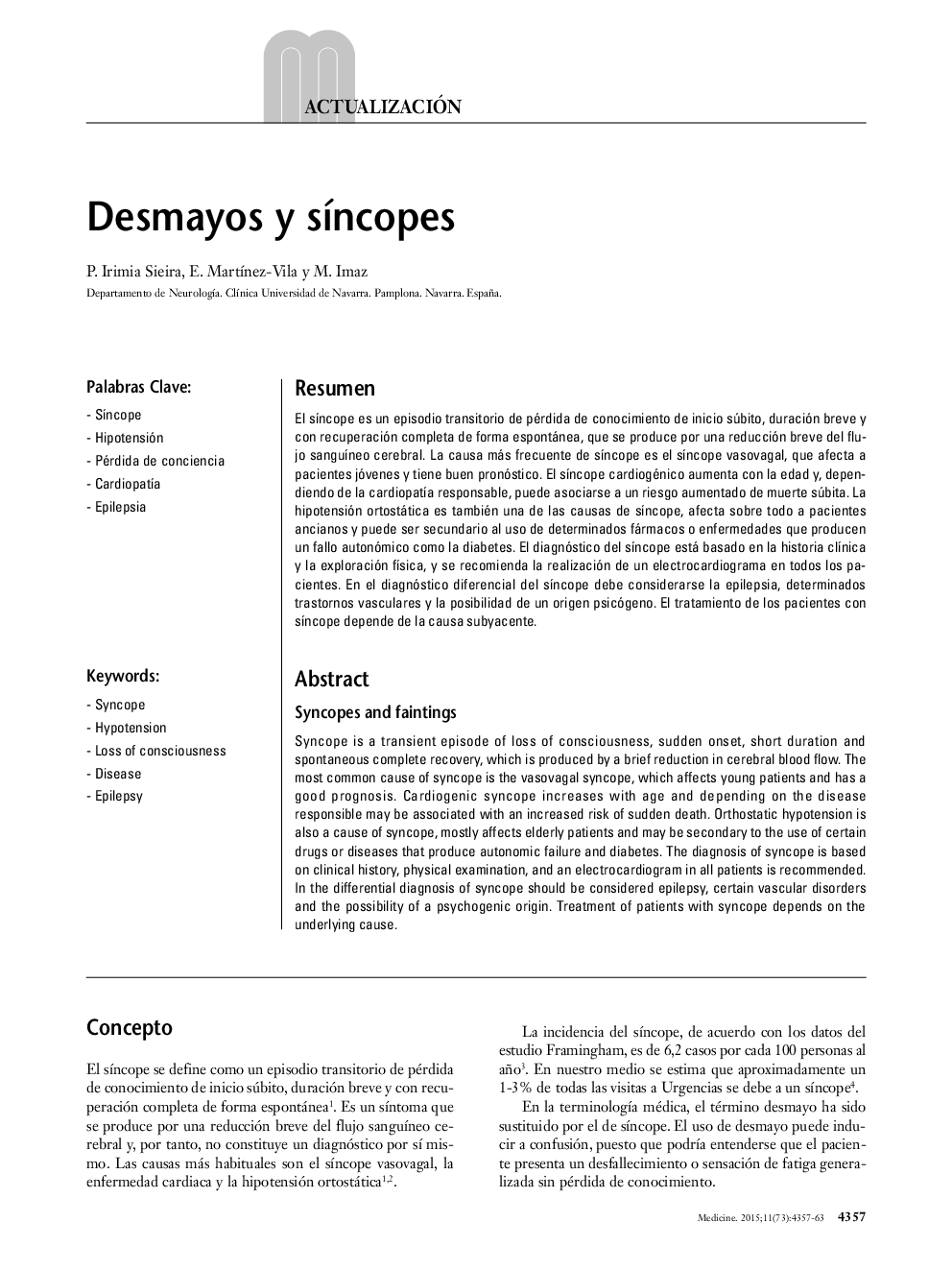| Article ID | Journal | Published Year | Pages | File Type |
|---|---|---|---|---|
| 3806498 | Medicine - Programa de Formación Médica Continuada Acreditado | 2015 | 7 Pages |
Abstract
Syncope is a transient episode of loss of consciousness, sudden onset, short duration and spontaneous complete recovery, which is produced by a brief reduction in cerebral blood flow. The most common cause of syncope is the vasovagal syncope, which affects young patients and has a good prognosis. Cardiogenic syncope increases with age and depending on the disease responsible may be associated with an increased risk of sudden death. Orthostatic hypotension is also a cause of syncope, mostly affects elderly patients and may be secondary to the use of certain drugs or diseases that produce autonomic failure and diabetes. The diagnosis of syncope is based on clinical history, physical examination, and an electrocardiogram in all patients is recommended. In the differential diagnosis of syncope should be considered epilepsy, certain vascular disorders and the possibility of a psychogenic origin. Treatment of patients with syncope depends on the underlying cause.
Keywords
Related Topics
Health Sciences
Medicine and Dentistry
Medicine and Dentistry (General)
Authors
P. Irimia Sieira, E. MartÃnez-Vila, M. Imaz,
